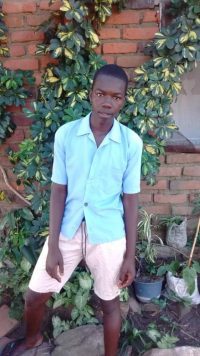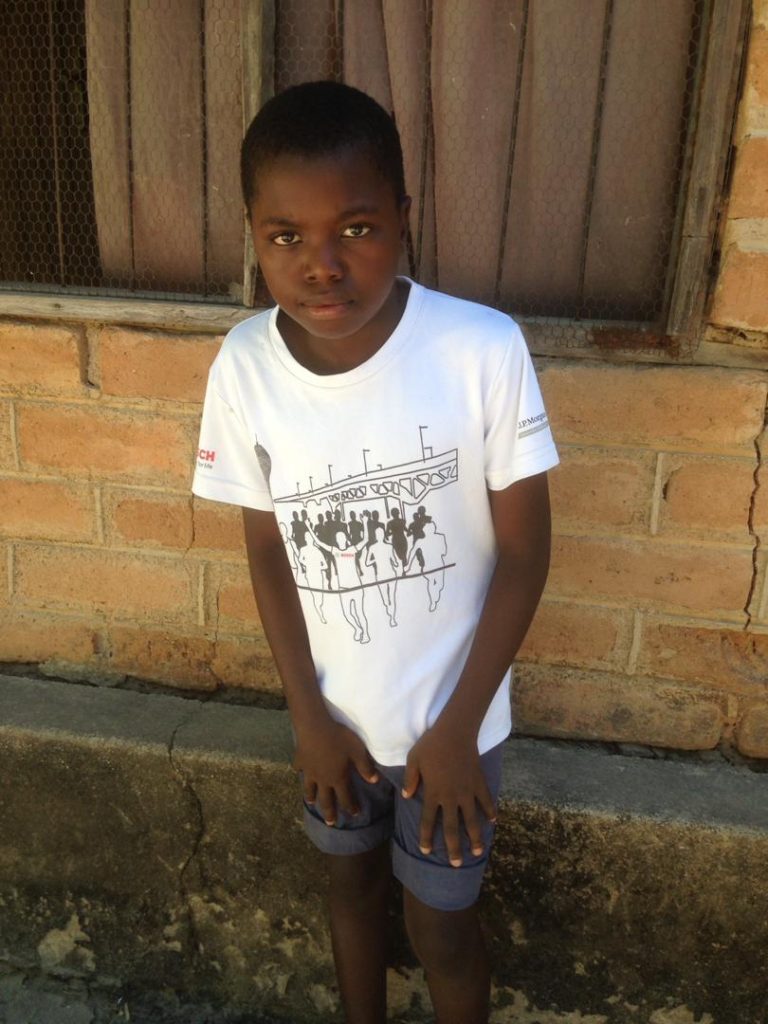Education in Malawi
Educating girls in Malawi – Andrew Banda
The community around our school is made up of ten villages with over 16,000 people. 95% of this population does not have education and reliable source of income. They struggle to make any money. A small percentage that earns income gets 25 pounds per month which makes it difficult for them to achieve the purpose in their daily life. This limits them to support their children in the pursuit of their education.
Most victims of this problem are girls. Because they have nothing to do, and nowhere to go, they are forced into early marriages. This in turn has brought serious socio-economic challenges. When you educate a man, you educate an individual, but when you educate a girl you educate a society”.
In Malawi a child starts primary education at the age of five or six, and finishes at the age of 12, 13 or 14 years of age. The classes are from grade one to grade eight. In each grade a child takes an exam as he/she goes from the lower to the higher grade.
The subjects in the primary school curriculum in Malawi consists of: English Language, Chichewa Language, Mathematics, Agriculture, Science and Technology, Social Development, Life Skills, Expressive Arts, and Religious Education. There are extra activities: sports, wild life club, child protection club, quiz club, science club and many more.
In grade eight a child takes a national exams administered by Malawi National Examination Board ( MANEB) which we call Primary Leaving Certificate of Education (PLCS). Because of limited space in government secondary schools, few students get selected. For example, every year almost 220,000 candidates sit for standard eight exams, of these 190,000 pass, but only 45,000 get selected to go to a government secondary school. Out of 45,000 the number of girls is always very small.
At the age of either 12, 13 or 14 a child starts form one either at government secondary school or private one. At secondary level a child has also to take principal exam from form one up to form four. In form four a child takes national exams which we call Malawi School Certificate of Education (MSCE). When a child finishes form four, he/she now starts a journey to college/universities.
A measure of success is the SACMEQ, South African Consortium for Monitoring Education Quality. Only 9% of children in Malawi reached a minimum standard in English and Maths during the primary school.
The cost of education in Malawi
A child pays £2 per year for 3 terms go to a Government Primary School. In private schools it is £15 per year.
A child pays £300 per year (3 terms) to go to a Government Secondary School,full boarding. In private schools a child pays £450 per year (3 terms), full boarding.
In government colleges cost £1000 per year and private colleges £1300 per year. A child spends four years at college/university, finishing their education at the age of 20 or 21 years old.
The situation at the Chankhasi Primary School.
The school has a dedicated staff and community support. The student staff ratio is about 60:1. There are 329 children at the school.
Some facts – General Situation in Malawi
- 12% children die before 5 years old
- Children aged 5-16 years make up 40% of the population. Of these, 12% are orphans and nearly half the children start school with stunted growth, due to malnutrition.
- The prevalence of HIV/Aids in adults is 12%
- 63% families live on less than £2 per day
- Only 35% children who start primary school in Malawi complete it.
- 17% children go to secondary school, mainly boys
- One child in 2000 in Malawi goes onto higher education
- The Student Teacher ratio is usually between 80:1 and 100:1
Long term Benefits – as reported by the World Bank and WHO
The more children completing education, even at primary level will benefit the society.
For example:
- One extra year of schooling increases an individuals earnings by up to 10%: the effect can be double for women
- Adding one more year of education decreases by at least 10 % the probability of a girl giving birth when she is still a teenager.
- A child whose mother can read is 50% more likely to live past the age of 5 years, 50% more likely to be immunised and twice as likely to attend school.
Weather in Malawi by Ronald Mvula Aged 14 years

Chankhasi School, Malawi
This essay talks about weather in Malawi and it’s effect.
Weather is defined as a daily condition of a particular place for a short period of time. Weather in Malawi is under summer and winter.
August, September, October, November, December and early January are very hot and sunny months while April, May, June and July are very cold, windy and cloudy months.
End of January, February and March are rainy months.
Weather in Malawi sometimes cannot be reliable. This affects agriculture production. For example, rain may start as early as October and ends as early as February . Sometimes may also start late and ends early.
Malawi depends very much on rainfall for its agriculture produce and agriculture is a main source of our economy. And when rainfall does not start at right time and ends at right time agriculture produce will be very low. This leads to hunger in many families. The country also loses money that it gets from the same.
In winter season, especially March, April, May, people experience coldness, but sometimes they may also experience hotness. So here one can see that it’s very difficult to predict weather.
Weather in Malawi affects education. Children who like hot conditions do not often go to school when there is high cold condition.
Many learners do not attend classes. If they attend they have to come very late or cover themselves with sweaters.
In the hot season learners concentrate very little when it comes to studies while in the cold season learners concentrate very much. Looking at this situation the school management has to make sure that every child who comes to school needs to have a sweater.
In other districts people also like cold conditions. When hotness comes they do not feel comfortable.
In hot conditions people suffer from malaria very much while in cold conditions they do not suffer from malaria very much.
So here we can say that malaria is a big problem where temperature is very hot unlike areas where temperature is very cold.
In Malawi in the months of June, July and early August people experience south-easterly wind (mwera wind). This is a very strong wind.
The good side of this wind is that the clouds it accumulates when blowing bring rainfall sometimes. This gives hope to crops which are planted late due to late start of rainfall.
The bad side of it is that it kills many, especially fishermen on the lake Malawi.
In this essay we have seen what weather in Malawi is like, its effect on education, economy and lives of people.
Agriculture in Malawi by Tadala Banda, aged 13 years
Chankhasi school, Malawi

This essay explains about Agriculture, especially what we learn in primary school in Malawi. In agriculture we cover many topics but here I will only explain more on soil composition, irrigation, fish pond and animal husbandry.
Although these topics are taught in primary school they are also covered in secondary school but there it is in more depth.
Soil composition. In this topic we learn that soil is made up of organic and inorganic matter, soil water and soil air. This topic helps a student to know the best soil that can suit different types of crops.
In Malawi there is a problem that most people who go to school do not become farmers. Most farmers do not have knowledge of soil composition. This problem leads to low agriculture production.
Another problem is that most lessons on this topic are just taught in class, learners do not go to the field to see this soil composition.
So the government of Malawi should find a way to teach most farmers about soil composition. The government of Malawi should help learners especially in schools in rural areas to do practical work.
Another topic we learn is irrigation. In this area we learn different methods of irrigation and the importance of irrigation. Although we learn a lot in this topic, the problem is that most of the students after school do not practice that. Another problem is that lack of material for irrigation fails the program.
Our school, Chankhasi, is very close to the lake Malawi, just 200 meters. We also have rice gardens but we only learn it class not seeing how this is done.
Another topic is fish pond. In this area we learn how to raise fish, we also learn how to construct a fish pond and different materials we use.
The problem is that we only learn this in class. We only see a photo on a page of the book, but we do not practice it. If the government constructs fish pond at every primary school that will be helpful.
Another topic is farm animals. In this area we learn more about animals that promote agriculture produce in Malawi. Although we have knowledge in this area most people in Malawi do not have animals that can help them.
In this essay we have seen the helpful topics we learn in Agriculture. The problem is that most of the work takes place in class, not in the field. My advice is that starting from primary school agricultural subjects should be taught both in class and the field.
If this is done, Malawi will be a hunger free nation.
Comments are closed